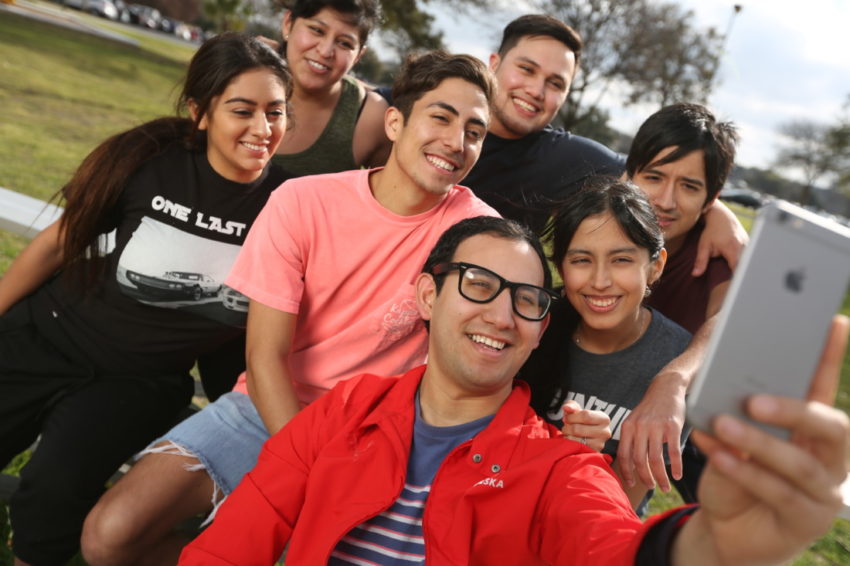
Share On Social!
Dr. Amelie G. Ramirez of UT Health San Antonio today received a new $1.3 million grant to expand Quitxt, her bilingual service that sends texts with culturally and regionally tailored support to help South Texan young adults quit smoking.
The new grant is from the Cancer Prevention Research Institute of Texas.
The new funding will enhance the Quitxt service—currently designed to turns a user’s phone into a personal quit coach by providing texts and links to online support, educational content, music, and videos—with a new social media support component.
Quitxt also will extend beyond South Texas to include English and Spanish speakers in rural counties, and Spanish speakers in urban areas of South, West and Central Texas.
To quit smoking now, join Quitxt in English or Spanish today!
“We are deeply honored to be able to expand and extend our Quitxt texting program to help young adults quit smoking across Texas,” said Dr. Ramirez, director of Quitxt and the Institute for Health Promotion Research at UT Health San Antonio.
Dr. Ramirez’s project team will include Dr. Patricia Chalela and Kip Gallion at UT Health San Antonio, with assistance from text-message system expert Dr. David Akopian of UT San Antonio and his team, as well as Dr. Alfred McAlister, a tobacco cessation and communication expert from the UT School of Public Health – Austin Regional Campus.
The need for quit-smoking resources in Texas
Smoking rates are high among Mexican Americans along the border and across South Texas, ranging up to 25.7 percent. This heightens the risk of cancer and heart disease.
But few culturally relevant programs target this problem.
In rural areas, there are no quit-smoking programs designed specifically for young adult Latinos and non-Latinos.
Quitxt aims to meet that gap.
How Quitxt works
Text support is proven to double your odds of quitting.
To create the Quitxt texting service, Dr. Ramirez’s team joined with Dr. Akopian’s team. Together they adapted parts of proven federal tobacco cessation programs and built a texting system and content to fit the unique culture and linguistic styles of Latino young adults who smoke tobacco cigarettes across South Texas in San Antonio, Laredo, Corpus Christi, Del Rio, McAllen, Brownsville, and Harlingen.
Text message content—with links to mobile support, real testimonials, and more—helps users with motivation to quit, setting a quit date, handling stress, and more.
Dr. Ramirez launched Quitxt in English in 2015, thanks to a $1.4 million grant from the Cancer Prevention Research Institute of Texas.
The service added a Spanish component in late 2016.
Does Quitxt really work?
More than 1 in 5 Quitxt users fully quit smoking after completing the English version, according to published data in the journal Health Promotion Practice in 2017.
This quit rate is similar or better than other texting programs.
The study also confirms that text and mobile-media service specifically designed for young adults provide a feasible and potentially cost-effective approach to promoting cessation, according to the researchers led by Dr. Ramirez.
For the enhanced and extended Quitxt service, Dr. Ramirez and her team expect to recruit about 5,000 young adult smokers.
They expect 1,000 to quit smoking.
“This will add approximately 10 years to each of their lives at an estimated net cost of less than $450 per year added,” Ramirez said.
“There’s no better time than now to get help from Quitxt. Quitting smoking is proven to improve your health, increase your life span, and save money.”
Explore More:
Healthcare AccessBy The Numbers
25.1
percent
of Latinos remain without health insurance coverage



